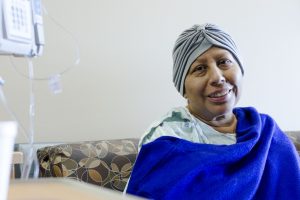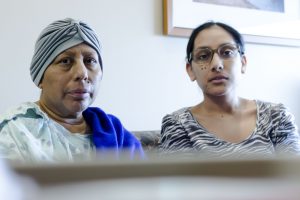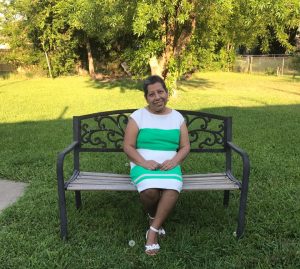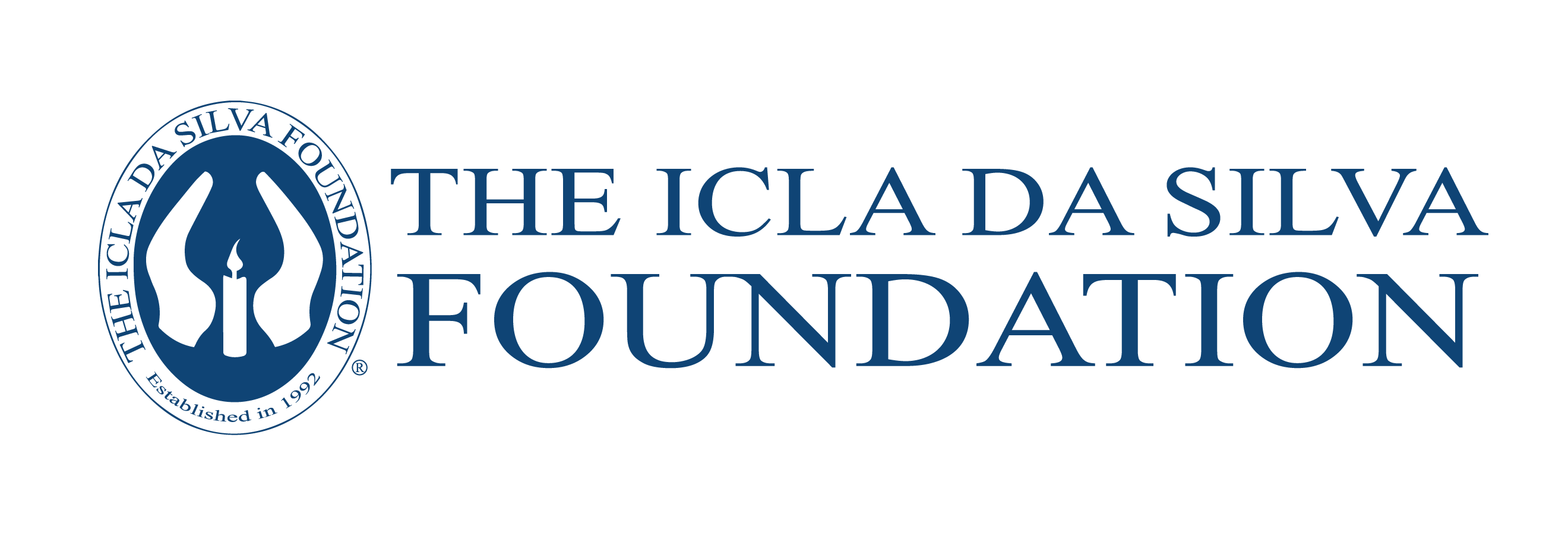August 18, 2018 | News, Patient Stories
Olga’s Story – They Still Need Me
They Still Need Her
 Olga is battling cancer for the second time. She was first diagnosed with leukemia in 2016, and went into remission. In 2018, she struggled for months with chronic fatigue, constant headaches and strange bruising. In March, she was diagnosed with AML, acute myeloid leukemia. AML is a cancer of the blood and bone marrow and usually gets worse quickly if not treated. Her best chance of survival is a matching bone marrow transplant.
Olga is battling cancer for the second time. She was first diagnosed with leukemia in 2016, and went into remission. In 2018, she struggled for months with chronic fatigue, constant headaches and strange bruising. In March, she was diagnosed with AML, acute myeloid leukemia. AML is a cancer of the blood and bone marrow and usually gets worse quickly if not treated. Her best chance of survival is a matching bone marrow transplant.
Olga is a 52-year-old mother of three and grandmother of two. Her family emigrated to the Dallas area fifteen years ago from a small-town named San Buenaventura, in Coahuila, Mexico. They came seeking better treatment for their daughter Betty, who was suffering from a chronic growth deficiency. It took 8 years for Betty to recover and by then, they had formed a life here.
She has been married for 30 years. Her husband Jesus works in construction and is the primary breadwinner for the family. “I used to work at my mom’s second-hand store in Mexico, but since we got here I’ve stayed home to care for the children and the house,” she said. Not being able to care for their home is what frustrates Olga the most about having cancer, she is always tired. The family moved here 15 years ago to seek help for their daughter and now the tables have turned. Betty has quit her job in order to care for her mother full-time.
 An elevated temperature and low white blood cell count has Olga back in the hospital, with Betty at her bedside. “It wasn’t like this the first time,” said Olga. “I feel like they keep releasing me just so I can turn around and come right back.” She has been hospitalized many times since receiving her second diagnosis in March of 2018.
An elevated temperature and low white blood cell count has Olga back in the hospital, with Betty at her bedside. “It wasn’t like this the first time,” said Olga. “I feel like they keep releasing me just so I can turn around and come right back.” She has been hospitalized many times since receiving her second diagnosis in March of 2018.
Olga has no health insurance and they have been told that the only options for treatment were the MD Anderson Center in Houston, or to seek medical assistance in Mexico. The family’s history with the medical system in Mexico is what led them here in the first place. “Here they work with you if you can’t afford to pay right away,” she said. “In Mexico, if you don’t have the money upfront, you won’t receive treatment.”
It Takes A Village
The family is thankful of the help they have been receiving. They were grateful to find a doctor from Medical City Dallas Hospital in Dallas, Texas, who agreed to perform the procedure once a compatible donor is found. The Icla da Silva Foundation is helping the family by testing Olga’s brothers and sisters in both the United States and in Mexico. Only about 30 percent of patients will find a match within their family. The other 70 percent turn to the Be The Match registry to find a matching donor. Compatibility is based on HLA (human leukocyte antigen) proteins or markers found on almost all cells in the body. They help the immune system identify self-cells from non-self-cells, which trigger the bodies immune response. HLA types are inherited and finding a compatible match increases with people of the same ethnic ancestry.
Unfortunately, minorities are underrepresented on the registry, making it more difficult for those patients to find a matching donor. The Icla da Silva team is focused on changing this unfortunate fact and we continue to hold marrow drives throughout the country in an attempt to educate and add more diversity to the Be The Match registry.
 Olga has faith that a match will be found and she will recover. Referring to her family, “they still need me,” she says, “God gives me strength.”
Olga has faith that a match will be found and she will recover. Referring to her family, “they still need me,” she says, “God gives me strength.”
Please join the registry to help Olga or one of the other 14,000 patients searching for their match.

 Inglés
Inglés Español
Español Portugués
Portugués